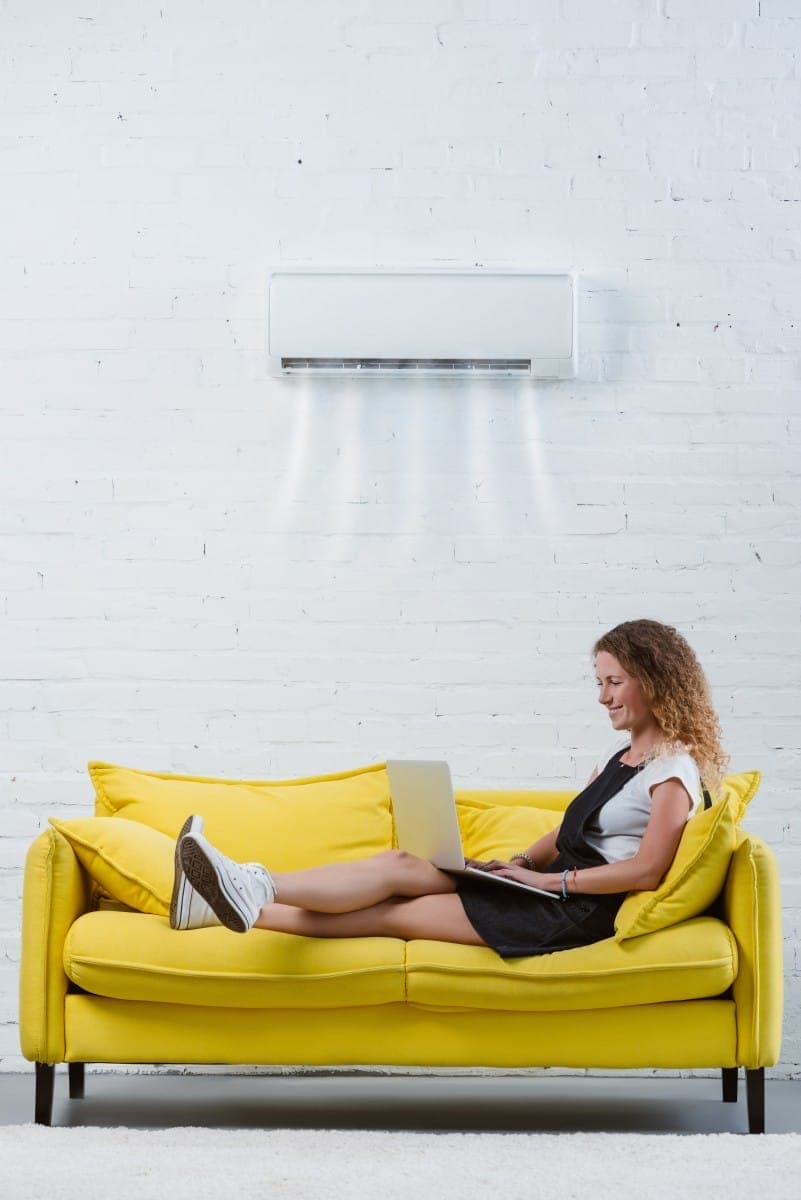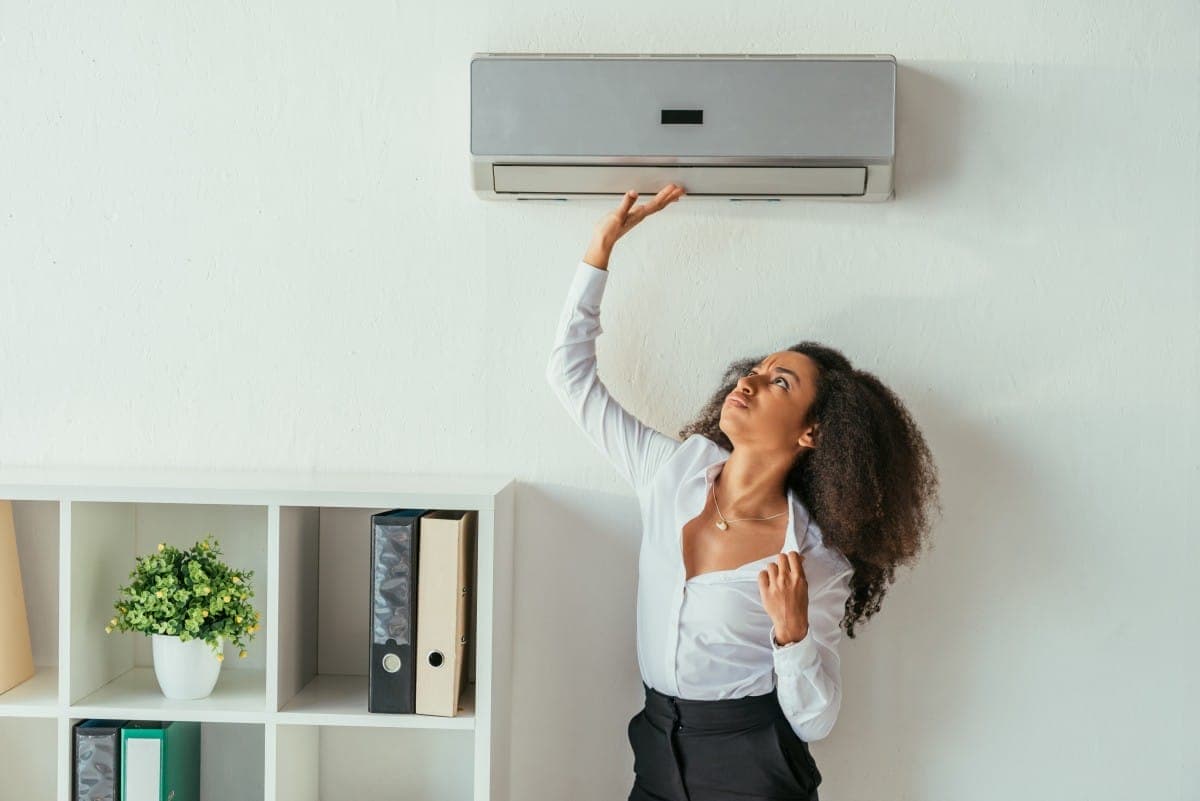Skincare
How Air Conditioning Impacts Skin Health
If you click on links we provide, we may receive compensation.
Air conditioning is a common feature in homes and workplaces, providing comfort during hot weather. However, while it offers relief from the heat, it can have several effects on skin health. The cold, dry air produced by air conditioners can lead to a variety of skin issues, particularly for those who spend prolonged periods in air-conditioned environments.
One of the most noticeable effects of air conditioning on the skin is dryness. Air conditioners work by removing moisture from the air, which can result in a lower humidity level indoors. This decrease in humidity can strip the skin of its natural moisture, leading to dryness and flakiness. People with already dry skin conditions, such as eczema, may find their symptoms exacerbated when exposed to air-conditioned air for extended periods.
Moreover, the constant exposure to cold air can cause the skin’s natural oil production to decrease. Sebum, the skin’s natural oil, helps to keep the skin moisturized and protected. When the skin produces less sebum, it can become more prone to irritation and sensitivity. This reduction in natural oils can make the skin feel tight and uncomfortable, further contributing to dryness and irritation.
In addition to dryness, air conditioning can also lead to the development of fine lines and wrinkles. Moisture is crucial for maintaining skin elasticity, and when the skin is deprived of this moisture, it can begin to lose its suppleness. Over time, this can result in the formation of fine lines and wrinkles, particularly around areas of the face that are more expressive, such as the eyes and mouth.

Sensitive Skin
People with sensitive skin might experience more pronounced effects from air conditioning. The cool air can irritate sensitive skin, leading to redness and inflammation. This can be particularly problematic for individuals with conditions like rosacea, where skin irritation can trigger flare-ups. To combat these issues, it’s essential to use skincare products designed for sensitive skin and to maintain a consistent skincare routine.
While air conditioning can exacerbate skin problems, there are steps you can take to mitigate its effects. Using a humidifier can help to add moisture back into the air, reducing the drying effect of air conditioning. Additionally, drinking plenty of water throughout the day can help to keep your skin hydrated from the inside out. Applying a good quality moisturizer regularly is also crucial, particularly one that is formulated to provide long-lasting hydration.
It’s also important to consider the impact of air conditioning on acne-prone skin. Dry, cool air can lead to an overproduction of oil as the skin attempts to compensate for the lack of moisture. This excess oil can clog pores, leading to breakouts and acne. Using non-comedogenic skincare products can help to reduce the risk of clogged pores and acne while keeping the skin hydrated.
A study by the American Society for Dermatologic Surgery found that 60% of people experience some form of skin issue related to air conditioning use. This statistic underscores the prevalence of skin problems caused by prolonged exposure to air-conditioned environments.
Allergies
Another aspect to consider is the potential for allergic reactions. Air conditioning units can circulate dust, pollen, and other allergens that can settle on the skin and cause reactions. Keeping the air conditioner clean and using air purifiers can help to reduce the presence of these allergens and minimize the risk of skin reactions.
To further protect your skin, consider adjusting the settings on your air conditioner. Setting the temperature to a moderate level rather than a very low one can help to reduce the drying effects. Additionally, taking breaks from air-conditioned environments and spending some time outdoors can allow your skin to recover and retain its natural moisture balance.

Nighttime skin care is particularly important for those who sleep with the air conditioner on. Using a heavier moisturizer or a hydrating serum before bed can help to counteract the drying effects of the air conditioning. Consider using a silk or satin pillowcase, which is less likely to absorb moisture from the skin compared to cotton pillowcases.
For those with severe skin conditions, consulting with a dermatologist can provide more personalized advice and treatment options. A dermatologist can recommend specific products and routines tailored to your skin’s needs, ensuring that it remains healthy despite the use of air conditioning.
In summary, while air conditioning offers comfort and relief from heat, it can have several adverse effects on skin health. From dryness and fine lines to acne and allergic reactions, the impact of air-conditioned air on the skin is significant. By taking proactive measures, such as using humidifiers, adjusting air conditioner settings, and maintaining a proper skincare routine, you can mitigate these effects and keep your skin healthy and hydrated. Remember, your skin is your body’s largest organ, and taking care of it should be a priority, even in the comfort of an air-conditioned space.




